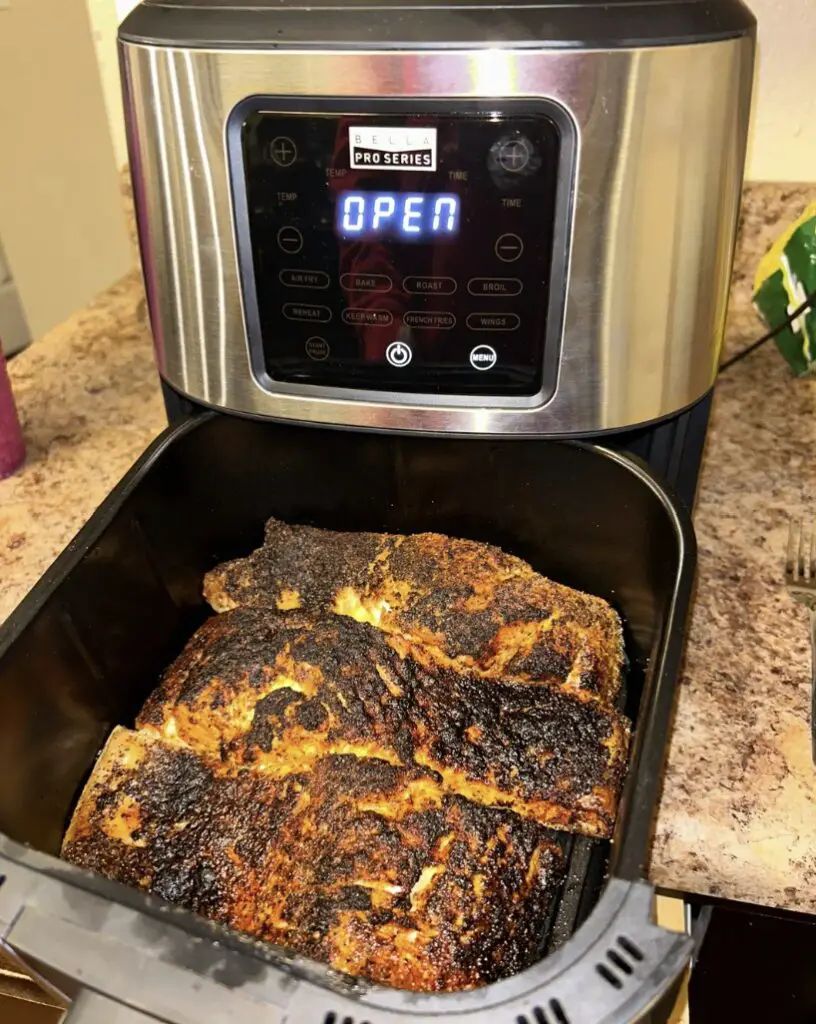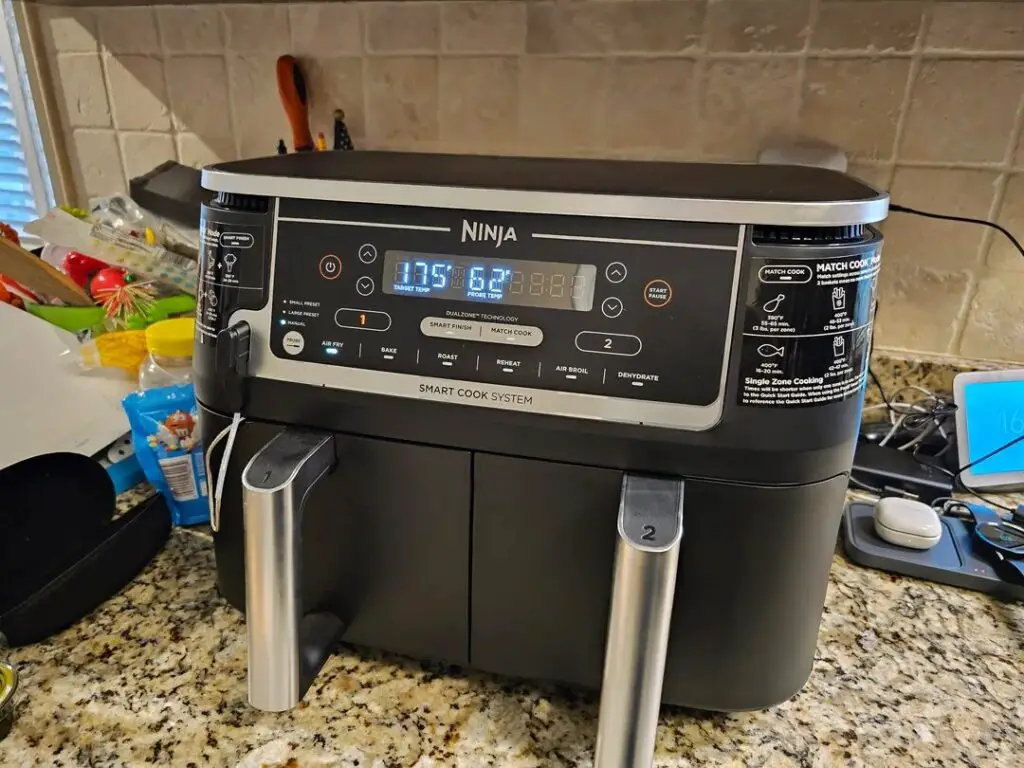Why You Should Always Unplug This Kitchen Appliance at Night: A Real-Life Wake-Up Call About Air Fryer Safety
Like many people, I consider my air fryer one of the greatest modern kitchen inventions. Ever since I first brought one home, it quickly earned a permanent spot on my countertop. It fries without the oil, roasts veggies to golden perfection, cooks chicken wings that rival restaurant quality, and does it all faster and with less mess than any oven or stovetop setup. The convenience, the speed, and the flavor—it felt like I had struck culinary gold.
But recently, one quiet night changed my relationship with this seemingly harmless device. A night that started with a plate of fries ended with a whiff of smoke and a hard lesson about appliance safety—one I won’t soon forget. If you’re someone who leaves your air fryer plugged in overnight or when you leave the house, you might want to rethink that habit. Here’s why.
A Normal Evening, Until It Wasn’t
It had been a particularly exhausting day. The kind that leaves you drained, mentally and physically. I came home late, too tired to make anything elaborate. The solution? My trusted air fryer. Within minutes, I had a batch of crisp, golden fries ready to eat. I plated them, sprinkled on a bit of salt, and shuffled over to the living room to unwind with a movie. I didn’t bother to unplug the air fryer—it was off, and like most people, I assumed that was good enough.
A couple of hours later, after my movie ended, I headed into the kitchen to grab a glass of water. That’s when I noticed it: a faint, burning smell. It wasn’t overpowering, just enough to make me stop. I instinctively checked the stove. Nothing. Then I looked around and noticed a subtle trail of smoke coming from the back of my air fryer.
My pulse quickened. I rushed over and yanked the cord from the wall outlet. The plug was hot—uncomfortably so. Upon closer inspection, I saw that the plastic around the plug was beginning to melt, curling slightly at the edges. I was shocked. That air fryer hadn’t been on for hours. Yet there it was—heating up on its own.
The realization hit me hard: If I hadn’t come into the kitchen when I did, things could have ended very differently. A small electrical fire, triggered in the middle of the night, with everyone asleep—it was a chilling thought.
The Startling Reality: My Experience Is Not Unique
Unable to sleep, I did what many of us do in the aftermath of a scare: I Googled. I wanted to know how common this kind of incident was. Was my air fryer defective? Was this just bad luck?
What I found was both eye-opening and deeply concerning.
There are hundreds of similar stories online. Social media posts, Reddit threads, product reviews, and even official reports from fire departments and consumer safety organizations—many detailing air fryers that began smoking, overheating, or even catching fire when left plugged in. In some cases, they were being used improperly. But in many others, the devices weren’t in use at all. They were just sitting there. Plugged in.
Understanding the Risk: Why Air Fryers Can Be Fire Hazards
To understand why air fryers pose a greater risk than some other kitchen appliances, we need to look at how they work.
Air fryers combine a high-powered heating element with a fan that circulates hot air around food. This allows them to cook quickly and evenly, producing that crispy texture we all love. However, this powerful combination also draws a considerable amount of electricity. And when electrical components malfunction—whether from wear and tear, manufacturing defects, or user neglect—they can become serious fire hazards.
Here are some of the main risk factors:
- Internal heating element failure: In rare cases, the heating element can remain partially active even when the device is “off.”
- Residual grease and debris: Leftover food particles or oil buildup inside the air fryer can ignite if exposed to heat or a short circuit.
- Defective wiring or overheating plugs: Worn or low-quality cords can become overloaded, leading to hot plugs or melted plastic.
- Poor placement: Many air fryers are left near flammable materials like paper towels, curtains, or wooden cabinets.
Why Plugged-In Appliances Are Never Truly “Off”
This was one of the most surprising things I learned that night. When an appliance is plugged in, even if it appears to be turned off, some components can still be drawing power. This is especially true if the device has an electronic display or standby mode.
If there’s any kind of electrical fault—frayed wiring, faulty circuitry, or stuck relay switches—electricity might still be flowing into parts of the appliance that aren’t designed to stay energized. This hidden energy can generate heat and, over time, lead to dangerous consequences.
Firefighters and Safety Experts Are Speaking Out
Fire departments across the country have begun issuing warnings about the risks associated with small kitchen appliances, particularly air fryers and toaster ovens. According to the National Fire Protection Association (NFPA), cooking equipment is the leading cause of home fires. While many of those fires start on the stove or in the oven, countertop appliances are increasingly being implicated.
In fact, some departments have taken to social media to share photos of melted air fryers and burned countertops. They urge homeowners to adopt a new rule: if you’re not actively using a kitchen appliance, unplug it. Especially if you’re going to bed or leaving the house.
These warnings aren’t about creating panic—they’re about prevention. Most electrical fires are preventable with simple habits and routine maintenance.
Developing Safer Kitchen Habits
I’ll admit, before this incident, I rarely thought about appliance safety. Like most people, I assumed that modern appliances were built to high standards and that as long as I wasn’t misusing them, they were perfectly safe. But the reality is that no appliance is immune to failure.
Now, I’ve adopted a few easy, proactive habits to keep my home safer—and I urge you to do the same:
1. Unplug Your Air Fryer When It’s Not in Use
This is the single most important step you can take. It cuts the power completely and eliminates the risk of electrical faults while you’re not watching.
2. Inspect the Cord and Plug Regularly
Every week or two, take a moment to check the cord and plug for signs of wear, fraying, discoloration, or heat damage. If something doesn’t look right, stop using the device and contact the manufacturer.
3. Clean the Appliance Thoroughly and Frequently
Air fryers should be wiped down after each use. Every few weeks, do a deep clean—especially around the heating element and fan. Grease and crumbs are more than just messy—they’re fuel for fires.
4. Keep Flammable Items Away from the Air Fryer
Make sure your air fryer has space to breathe. Don’t place it under cabinets or near towels, paper products, or curtains.
5. Stay Home While It’s in Use
Even though air fryers are marketed as “set it and forget it” appliances, it’s wise to stay nearby while it’s running. If something goes wrong, you can catch it quickly.
6. Register Your Appliance
Many manufacturers issue safety recalls. By registering your product with the brand, you’ll be notified if your model is affected.
A Small Effort That Makes a Big Difference
These precautions don’t take much time or energy. They’re small changes, but they can make a huge difference in protecting your home and your loved ones. After all, fire prevention isn’t just about putting out flames—it’s about never letting them start in the first place.
Since that night, I’ve made unplugging the air fryer part of my nightly routine. At first, it felt like an unnecessary extra step. But now? It gives me peace of mind. And you can’t put a price on that.
Final Thoughts: Respect the Convenience, But Don’t Let It Fool You
I still love my air fryer. I still use it almost daily. But now, I treat it with the respect it deserves.
It’s easy to forget how powerful our everyday devices are. When something is so simple to use, we assume it’s simple in its operation. But the truth is, these devices are complex machines—combining heat, electricity, and moving parts in a small, confined space. And when something goes wrong, the consequences can be devastating.
So, this isn’t about fear. It’s about awareness. If you’ve never thought twice about leaving your air fryer plugged in overnight, I urge you to reconsider. That one second of unplugging it could be the difference between a normal morning and a tragedy.
Your air fryer is a wonderful tool. Just treat it like the powerful appliance it is.
Tonight, before you head to bed, glance at your kitchen counter. Find that plug. Pull it out. And rest a little easier knowing you’ve made your home just a bit safer.



